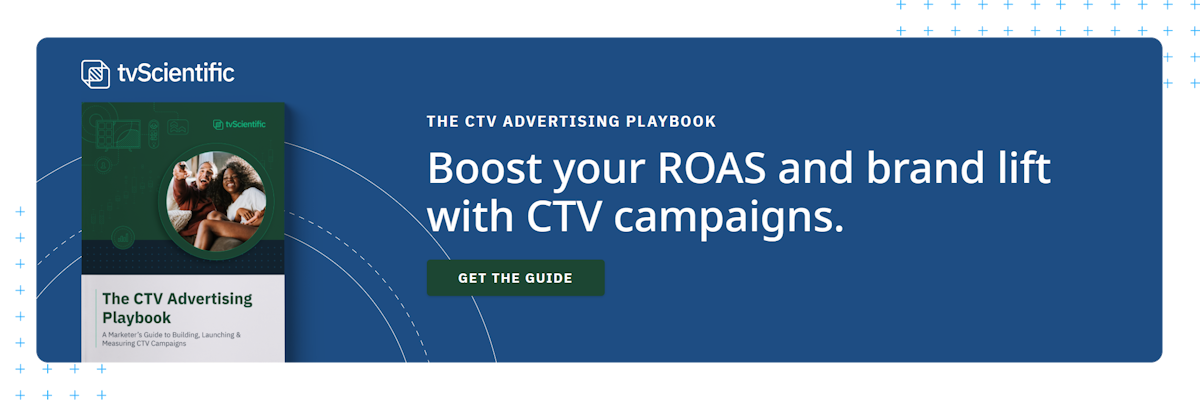Make travel advertising campaigns more effective by targeting the right audience
Across all advertising and marketing campaigns, one fundamental principle holds true: Reaching the right audience is the key to implementing successful marketing strategies. This is especially important to consider when it comes to the tourism industry and travel advertising for TV, a format where the impact and relevance of your advert messaging can mean the difference between success and mediocrity.
TV travel ad campaigns, and travel marketing efforts as a whole, aren’t just about showcasing beautiful destinations or tempting viewers with the allure of far-off places. Of course, in a post-pandemic world, those images certainly don’t hurt. Realistically, successful travel marketing campaigns hinge on ensuring your messaging across TV, social media, email marketing, content marketing, video ads, and any other media, resonates with those most likely to take your desired action — in this case, likely booking a vacation.
Whether you work with a travel agency, a company like Expedia, or a related travel business, join us as we unlock the secrets of audience targeting and its pivotal role in the world of travel advertising, with a specific focus on TV. Let’s explore how targeting strategies can boost your company's ROI and bring more value to every advertising dollar spent.
Why Does Finding Your Target Audience Matter?
Reaching the right audience on the right channel with a message speaking to a potential customer’s desires and interests will allow travel brands to level up their advertising efforts into highly effective, revenue-generating endeavors.
Effective audience targeting for TV travel advertising isn’t about getting your messaging in front of more people — it's about getting it in front of the right people. Below are just three benefits of focusing on the right potential customers instead of casting a wider, unspecified net:
-
Allocate Resources Efficiently: You could create the best travel advertising the world has ever seen, but targeting the right audience ensures that your marketing campaign’s budget is spent efficiently. Avoid one-size-fits-all audience targeting templates so you aren’t wasting money on viewers who are unlikely to become customers.
-
Increase Conversion Rates: When your message resonates with the right audience, you're more likely to see higher conversion rates. This means more bookings, more revenue, and a better ROI.
-
Boost Brand Loyalty: Targeting the right audience can help build long-term brand loyalty and show you care enough about your customers that you did the research on how to reach them. When your message speaks directly to your ideal potential customers, they're more likely to remember and choose your brand for their travel needs.
Reach Your Ideal Travel Ad Target Audience
With an understanding of why specifying and reaching your target audience is vital for travel marketing campaign success, let's look at some tangible strategies for maximizing ROI with effective targeting.
Understand Your Ideal Traveler
Before you can effectively target your audience and start boosting conversions, you must understand who your ideal traveler is, which starts with creating detailed traveler personas. These well-researched personas should include:
-
Demographics: Age, gender, income level, marital status, and more. At a base level, who are your current customers, and who do you want to reach?
-
Psychographics: Interests, values, lifestyle, and travel preferences. What type of experiences and travel destinations are your ideal customers interested in? Do you deal with adventurers looking for solo mountaineering in Europe or Iceland? Or are your customers gourmands searching for Japan’s renowned cuisine or Switzerland’s legendary chocolate?
-
Behavior: How do they research and book travel? What platforms do they use? Do they prefer to lean on a full-service travel agency?
-
Pain Points: What problems or challenges can your travel brand address for them? How do you make their lives easier, and why will they keep coming back to you?
With these personas in hand, you'll have a clear picture of who you're trying to reach.
Leverage Data and Analytics
Data is one of the most valuable currencies in the world. Analyzing your company’s collected customer data is a powerful tool for audience targeting in travel advertising for TV. Here are some best practices to make the most of your data:
-
Utilize Viewership Data: TV networks and platforms often provide data on their viewership, including demographics and viewing habits. Use this information to align your adverts with the right channels and time slots.
-
Harness First-Party Data: Analyze your existing customer database to identify common traits among your best customers. This information can help you target similar individuals through Connected TV advertising.
-
Explore Third-Party Data: You can also tap into third-party data sources that provide insights into consumer behavior and preferences. This can help you further refine your audience targeting strategy.
Segmentation and Personalization
One-size-fits-all advertising templates are no longer effective. When reviewing the highest performing, best travel ad examples, you’ll notice that a commonly recurring trait is how they’re tailored to specific audience segments. Consider segmenting your audience based on factors like:
-
Travel Interests: Adventure, luxury, family vacations, etc.
-
Travel History: Frequent travelers, occasional travelers, business travelers, etc.
-
Geographic Location: Understand where your customers are around the world
-
Life Stage: Honeymooners, retirees, families with young children, etc.
After segmenting out your audience, it becomes much easier to craft personalized messages that will resonate with each group's specific interests and needs.
Timing and Placement
Timing and placement have a significant impact on your TV ad effectiveness. Consider some of the below strategies when it comes to deciding on an ad schedule:
-
Dayparting: Different times of day attract different types of viewers. For example, morning shows may appeal to families, while late evening slots may attract younger, adventurous travelers.
-
Event Targeting: Capitalize on major events and holidays. For instance, promoting winter getaways before the holiday season can be highly effective.
-
Cross-Platform Promotion: Use TV advertising to drive viewers to your website or social media platforms, where you can further engage them and track their interactions.
A/B Testing and Optimization
Even with careful planning, it's essential to continually test, optimize, and adapt your TV advertising campaigns to keep up with market changes.
A/B testing allows for experimentation with trying different ad visuals, messaging, and targeting strategies. Monitor the performance of each variant and refine your approach based on the data.
Review and Analyze Your Outcomes
Whatever market segment you’re after, it’s important to remember to take time and review how your advertising campaigns are performing.
Achieving the highest ROI comes from continually reaching your audience, and that only happens when you continually do the legwork to track and evaluate your TV ad performance. Set a review schedule with your team to make sure you’re on the right track.
Make Every Second Count
In travel TV advertising, every second of airtime counts. Maximizing ROI means focusing on reaching the right audience with the right message. Effective audience targeting, backed by data, segmentation, and personalization, can transform your TV advertising campaigns from costly endeavors into revenue-generating assets that consistently drive high conversion rates.
By understanding your customer base and ideal travelers, leveraging data, and optimizing your strategy, you can make travel TV advertising a powerful tool for your brand's success in the ever-competitive travel industry.







